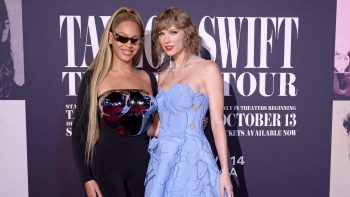Going after terrorists where they spend
KAI RYSSDAL: The House is set to start its debate tomorrow on a resolution opposing the president’s troop surge in Iraq. The most recent draft of that resolution that we’ve seen is just two paragraphs long. Without a single mention of the word…funding.
The warning from Democrats has been they’ll try to affect the course of the war by adjusting how they’re willing to pay for it. And by making the Iraqis pay for more.
John Taylor has some relevant experience there. He was Under Secretary of the Treasury during President Bush’s first term. With two big jobs: cutting off terrorist financing and getting the Iraqi economy going again. When we spoke I asked him what he and his colleagues encountered in the days after the invasion.
JOHN TAYLOR: Just imagine what it was like to go into Baghdad in April of 2003 with the Central Bank and the Finance Ministry looted. And trying to establish contact with the Iraqis to start running that economy again. These were tough people. Dedicated people. Brave people, but also smart on the financial side.
RYSSDAL: How did they do it? They didn’t walk in and pick up the phone and say “Hi, I’d like the Finance Ministry.”
TAYLOR: (Laughs) Yeah. They had to sit outside the buildings and look for contacts. And eventually, some of the old civil servants said “We’d like to meet with you.” So they sat down and saw who the really competent people were.
One of the most interesting stories is, some of the payroll records, which we thought were destroyed in the looting, the Iraqis had taken home with them. On their old laptops and floppy discs, and could bring them back. That’s how those first payments were made. So it was difficult to establish contact.
RYSSDAL: How do you set up an economy? I mean, Saddam Hussein stole a billion dollars from the Central Bank two days before . . . before the invasion.
TAYLOR: The plan we had, which was put together before the invasion, was first to pay Iraqis in U.S. dollars money that had previously been frozen. And that had worked very well. And then to put a new currency in place. That required a huge logistical effort. We had to put enough currency to fill 27 747 plane loads. And fly it into Baghdad from seven different printing plants around the world. And distribute it to 250 distribution points all through the country. And remarkably, it worked very well. And Iraqis were very happy to get a currency that did not have Saddam’s face on it. And it was reliable, in which they could use to buy and sell and carry out their transactions.
RYSSDAL: The new Democratic majority in Congress is raising some questions, has been all month, about where we are in Iraq. And why the U.S. needs to keep spending money there when, in theory, the Iraqi government has funds of its own.
TAYLOR: Well they’re raising good questions. One of the things that President Bush mentioned in his January 10th speech is that he wants the Iraqis to spend $10 billion of their own money on reconstruction as soon as they can. And that’s very important. They have accumulated $10 or $12 billion of
oil money which they need to get out their and spend. And create projects and help create jobs. And this is a country that is run by the Iraqis. And they don’t do everything we like, but there’s certain things that we really have to insist on. Such as spending their own money on the reconstruction.
One of the most difficult things in conflict reconstruction efforts is to get the money spent fast. And that’s international money, it’s U.S. money. It’s the money in the countries. It’s the . . . to me, the highest priority. Whether it’s Afghanistan or Iraq or any other place.
RYSSDAL: John Taylor’s a professor of economics at Stanford. He used to be the Under Secretary of the Treasury for International Finance in the first four years of the Bush administration. His latest book is called ‘Global Financial Warriors.’ Mr. Taylor, thanks a lot for your time.
TAYLOR: Thank you for your interest.
There’s a lot happening in the world. Through it all, Marketplace is here for you.
You rely on Marketplace to break down the world’s events and tell you how it affects you in a fact-based, approachable way. We rely on your financial support to keep making that possible.
Your donation today powers the independent journalism that you rely on. For just $5/month, you can help sustain Marketplace so we can keep reporting on the things that matter to you.


















